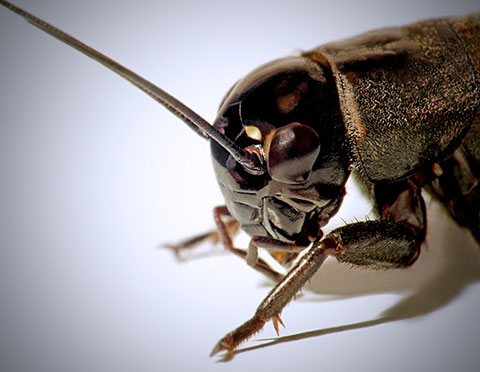Females Can Detect Cheat Males
Females can recognize a male with good genes even though it loses a battle of display. A research of Doctoral Candidate Mari Pölkki and Academy Researcher Markus Rantala from the Section of Ecology, University of Turku, showed that a male, that anticipated its own death, could win the battle of display. Nevertheless, females would not mate with it.

Researchers used agressive field crickets in the experiment.
- Females recognized “the cheat male”, Doctoral Candidate Mari Pölkki says.
In humans and many other species females prefer males with good genes.
Dominant behavior and good immune responses of males are related together. Therefore, it is generally thought that only healthy males in good condition are able to maintain better immune system and win fights.
The aim of the study was to test, how the manipulation of immunity affects the mating or fighting success of males.
The Death Threath Rose The Will to Fight
The group of researchers activated males’ immune system by using an artificial parasitoid to mimic a parasitoid larva. Comparison group contained males, which immune system was not manipulated.
In the experiment one female and male-male pair (other with activated immunity) were placed on the center of a fighting arena and fighting and mating success of the males were observed.
The manipulation of immunity made the males believe that they were going to die soon. They fought more aggressively than usual because they wanted a mating partner before their own death. Immune manipulated males won 46 of 63 fights.
As a surprise even for the researchers the immune manipulated male, that won the fight, did not get to mate with the female.
- The female did not accept the immune manipulated male. The female either chose the male that lost the fight or didn’t mate at all, Mari Pölkki says.
A Fight Is Not an Honest Signal
In the experiment researchers used the field cricket, Gryllus integer, as a model species. Males of the G. integer compete hard over dominance to attain females. Furthermore, females are found to prefer dominant males as mates.
- Somehow the female could sense that the male was not a good mating partner even though it was dominant, Pölkki says.
According to the results, dominant behavior during male-male competition might not always be an honest signal of male quality. Furthermore, females may be able to detect the dominance dishonesty.
The research was done in collaboration with Raine Kortet from the University of Eastern Finland and Ann Hedrich from the University of California, Davis.
This study was supported by the Turku University Foundation and the Finnish Cultural Foundation support to M.P., and the Academy of Finland to M.J.R. and R.K. (project no. 127398) and by the National Science Foundation to A.H. (IOS-0716332).
The study has been published in web-site of the Royal Society Publishing and it will be published in the internationally respected series of Biology Letters.
Erja Hyytiäinen